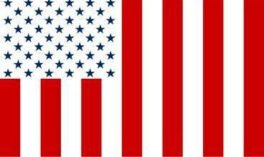Overview of the “Russian Collusion Hoax” Theory
The term “Russian Collusion Hoax” is used to describe claims that are widely regarded as discredited. These claims allege collusion between Donald Trump’s 2016 presidential campaign and the Russian government. This was to influence the U.S. election process. The theory became a major focus during and after the 2016 U.S. presidential election.
Origins of the Theory
The theory took root during the 2016 election campaign. U.S. intelligence agencies reported Russian hackers targeting the Democratic National Committee (DNC) and other political groups. These cyberattacks led to the release of confidential emails through platforms like WikiLeaks.
Allegations Against Trump’s Campaign
Critics of Donald Trump suggested potential collusion between his campaign and Russian officials. They raised suspicions that Trump and his team might have worked with Russia to undermine Hillary Clinton, his opponent.
Investigations into the Allegations
Several investigations were prompted by these allegations. The most notable was led by Special Counsel Robert Mueller, appointed by the U.S. Department of Justice. Mueller’s investigation focused on any evidence of collusion or obstruction of justice by the Trump campaign.
Findings of the Mueller Report
Released in April 2019, the Mueller report did not confirm a criminal conspiracy between Trump’s campaign and Russia. However, it identified possible obstruction of justice by the President. It did not conclude whether he had committed a criminal act.
Questioning the Collusion Narrative
Trump supporters and some conservative media labeled the collusion narrative as a “hoax” or a “witch hunt.” They argued it was an effort by political adversaries and biased media to undermine Trump’s presidency. The lack of definitive evidence of collusion supported their claim that the accusations were baseless.
Ongoing Debates and Discussions
Despite the Mueller investigation’s conclusions, debates and conspiracy theories continued. Some argued that concerns about Russian interference and efforts to sway the election remained valid, even without a criminal conspiracy.
Conclusion
It’s important to recognize that the Mueller investigation, while not finding sufficient evidence for a conspiracy charge, did uncover Russian interference in the 2016 election. It also revealed instances of obstruction of justice. This sparked legal and political discourse and actions. The phrase “Russian Collusion Hoax” is predominantly used by those who view the collusion allegations as entirely unsubstantiated. Opinions on this issue continue to be deeply divided in American politics.
